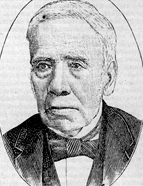

In his discourse the following aspects should be highlighted: a love of tradition, his contempt for the “rabble”, the defence of strong government by elites and a belief in natural inequality. With regard to tradition, this is not a question of tradition as theorized by Herculano’s pen. For Herculano, there was a legitimate tradition (the Middle Ages) and an illegitimate one (absolutism). For Soriano, tradition assumed the linear direction of the history the country had been building over the centuries since its foundation, but which was abruptly interrupted by the liberal revolution. In his discourse, he says that in political action priority should be given to a consideration of reality and experience, and not “to the abstract theories of parliamentary government”. He accepts the need for reforms, which he prefers to call “wholesome improvements”, but on condition that “the reforms are not worse than what already exists”. In his view, liberalism did not follow this precept. The middles classes perpetuated the “old abuses” (História da Guerra Civil…,1866-90, vol. XVII, p.361), and he even claims that he prefers “the learned despotism of kings to the despotism of certain liberals”(Op. Cit., vol. XI, p. XIII).
His contempt for the “rabble” is another constant in his pages. This is a sentiment that is shared by many of his contemporaries, beginning with Herculano (Fátima Sá, “Pueblo”, p.1234). Soriano differentiates between two categories: the “middle class”, the main supporter of the liberal system – the object of scathing criticism since it is from here that the majority of liberal politicians spring - and the “rabble”, “lower class”, “plebeians” or even the “bottom classes”. Contempt for these is justified as they are the holders of the “worst vices”, in particular their innate appetite for the anarchization of society. To prevent this, the only antidote is a strong government composed of men belonging to the “learned classes”. Soriano’s call to form strong governments appears very early on in his work (Utopias…,1858, pp. 93-94). Moving towards the end of the century, he once again advocates the same need for governments of “men of knowledge, of fortune, of experience” (História da Guerra Civil…, 1866-90, vol. XII, p.18). Underlying his contempt for the “rabble” is the idea that natural inequality is an immutable fact. If liberals like Herculano and others conceive of inequality not as an irremediable evil, an innate given, but as something that can be changed, notably through education, Soriano has no expectations about eliminating it or even reducing it (Op. Cit., vol. XI, p. XI). There is in him a resentment against the world, allied to an inability to understand modern societies, that leads him to confuse the growing intervention of increasingly broader sections of the population in political life with disorder and anarchy. This view is fed by his anthropological pessimism, according to which perverse passions dominate all human beings, but with a tendency to get worse the lower down the social scale you go (Op. Cit., 3ª época, tomo II, parte I, p.18).
